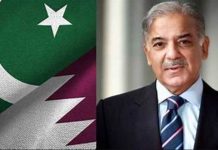DNA
LAHORE: The Pakistan Industrial & Traders Associations Front (PIAF) has urged upon the government to sell shares of state owned enterprises to overseas Pakistanis or local investors through stock exchange instead of giving priority to foreign investors to get both dollars and rupees, as in this way the national assets would remain in the hands of Pakistanis.
In a statement, PIAF chairman Faheem Ur Rehman saigol said that state-owned enterprises (SOEs) caused a colossal loss of Rs. 692 billion since 2017 to the national exchequer due to lack of reforms in these enterprises along with mismanagement and bad governance.
He stated that the government has run out of cash and wanted to sell state-owned enterprises to the foreign investors despite the previous bad experience of PTCL’s sale to Etisalat, which has yet to pay the agreed payments.
He said the SOEs are great burden on national exchequer and eating up about Rs.1,200 billion annually which actually was tax payers money. He suggested that it would be better to sell shares of these companies and enterprises on stock exchange to Pakistanis and expatriate Pakistanis to get both Dollars and Rupees for the government in order to reduce the gap of current account deficit of the country.
The government has now embarked on a fresh program of privatization of state-owned enterprises (SOEs) and properties for reducing public sector debts and fiscal deficits. It is expected that the privatization process will increase the efficiency of all economic sectors by invoking private sector’s technical competence. The government is working to complete the privatization of four to five public sector entities (PSEs) during current fiscal year.
Previous governments in Pakistan had attempted to take care of these enterprises since the 1980s with some success in certain sectors and total failure in others. Most large banks, cement, fertiliser, telecom and other businesses were successfully deregulated and sold to the private sector as the initial emphasis of policymakers shifted from supporting public sector enterprises to their privatization in the 1990s and beyond. While the move proved successful in certain cases, the attempts to reform or sell power companies failed except in the case of the divestment of KESC. Likewise, repeated attempts to restructure and reform PIA, Pakistan Railways and PSM have also proved futile, in fact, affairs at these organizations have worsened. He said that the industrialization is the key to the development of any economy and while small and medium enterprises play an important role in providing jobs, technological intensive heavy industries, such as shipping, auto manufacturing, electronics, and aviation, are essential for the industrial and economic progress of any country. Unfortunately, majority of Pakistan’s SOEs are inefficient, non-competitive and are incurring losses to the tune of billions of rupees, and providing monetary support to these loss-making enterprises puts a huge strain on the government’s finances.

















